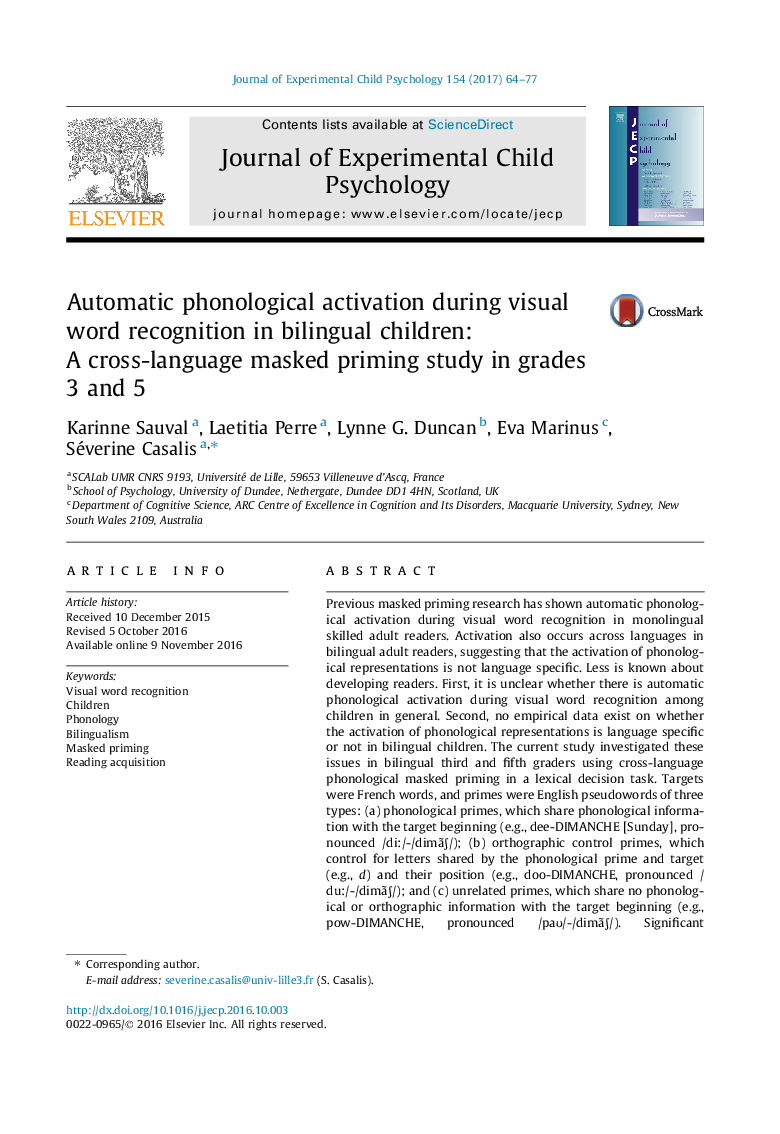| Article ID | Journal | Published Year | Pages | File Type |
|---|---|---|---|---|
| 5040032 | Journal of Experimental Child Psychology | 2017 | 14 Pages |
â¢We examined phonological code involvement in bilingual child readers.â¢A cross-language phonological masked priming lexical decision was conducted in 3rd and 5th graders.â¢Results revealed phonological code is not language-specific in bilingual children.â¢Phonological code is automatically activated from print from 3rd grade.
Previous masked priming research has shown automatic phonological activation during visual word recognition in monolingual skilled adult readers. Activation also occurs across languages in bilingual adult readers, suggesting that the activation of phonological representations is not language specific. Less is known about developing readers. First, it is unclear whether there is automatic phonological activation during visual word recognition among children in general. Second, no empirical data exist on whether the activation of phonological representations is language specific or not in bilingual children. The current study investigated these issues in bilingual third and fifth graders using cross-language phonological masked priming in a lexical decision task. Targets were French words, and primes were English pseudowords of three types: (a) phonological primes, which share phonological information with the target beginning (e.g., dee-DIMANCHE [Sunday], pronounced /di:/-/dimãÊ/); (b) orthographic control primes, which control for letters shared by the phonological prime and target (e.g., d) and their position (e.g., doo-DIMANCHE, pronounced /du:/-/dimãÊ/); and (c) unrelated primes, which share no phonological or orthographic information with the target beginning (e.g., pow-DIMANCHE, pronounced /paÊ/-/dimãÊ/). Significant phonological priming was observed, suggesting that (a) phonological representations are rapidly and automatically activated by print during visual word recognition from Grade 3 onward and that (b) the activation of phonological representations is not language specific in bilingual children.
